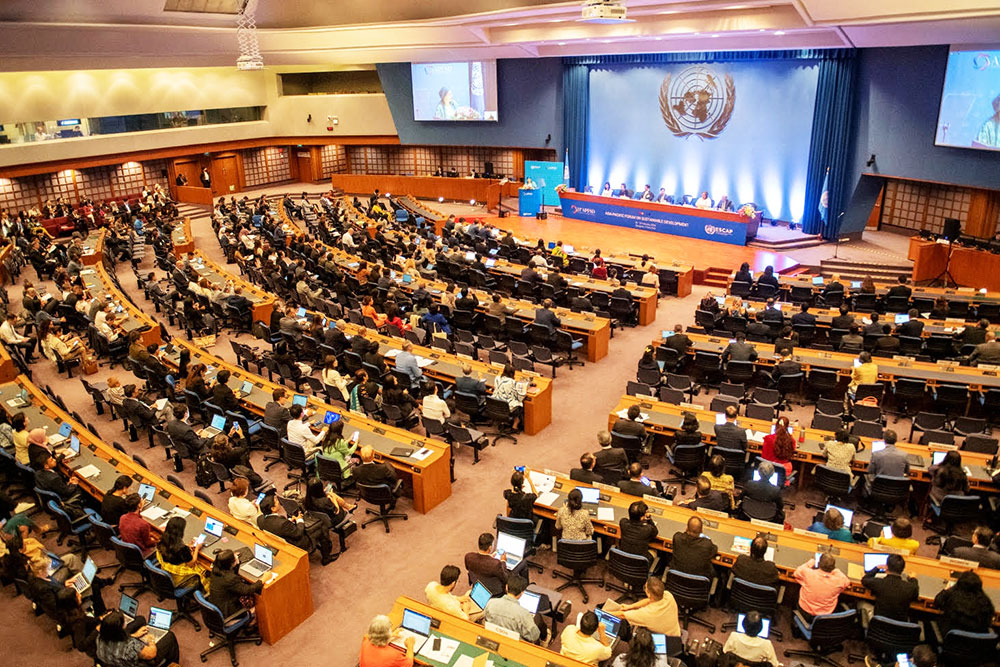…UN urges to translate commitments into actions
YK Poudel
The 11th Asia-Pacific Forum on Sustainable Development (APFSD) calls for countries to take urgent, accelerated actions supported by strong, sustained multilateral cooperation–or risk falling further behind on their aspirations for sustainable development in the wake of recent multiple crises.
It started yesterday in Bangkok attended by about 36 countries and ends on February 23.
Deputy Secretary-General of the UN, Amina J. Mohammed, said that country leaders supporting the UN Secretary-General’s call for an SDG stimulus and demanding that it be advanced without delay—and they also recognised the need for deeper change.
“No country or region can achieve the Sustainable Development Goals or navigate contemporary global challenges alone. International cooperation is essential, but the multilateral arrangements of today are simply not up to the job,” she said.
Organised by the United Nations Economic and Social Commission for Asia and the Pacific (ESCAP) from 20 to 23 February, the Forum brings together a cross-section of key development actors, including senior government and UN officials, the private sector and representatives of youth and civil society to share their experiences, and mobilise regional action and solutions.
Over the next four days, forum participants will undertake an in-depth review of the region’s progress on Sustainable Development Goals 1 (No Poverty), Goal 2 (Zero Hunger), Goal 13 (Climate Action), Goal 16 (Peace, Justice and Strong Institutions) and Goal 17 (Partnerships for the Goals).
The outcomes will feed into the global high-level political forum in July and ‘Summit of the Future’ in September later this year.
Shilpa Lamichhane of Visible Impact and representing the APFSD Youth Forum, drew attention to the need for meaningful engagement of young people in development processes: “We call for a dedicated and sustainable civic space for young people at the local and national level,” she said. “Connected cohesively at the regional level where we sit at the table as active decisionmakers, as active national delegation members and decide on the sustainable development issues that matter to us,” she said.
Similarly, the Asian Development Bank (ADB) and the United Nations Development Programme (UNDP) jointly launched the Asia-Pacific SDG Partnership Report 2024 titled “People and Planet: addressing the interlinked challenges of climate change, poverty and hunger in APR.”
The report notes that more frequent and severe climate-related hazards will result in reduced agricultural and labour productivity, loss of livelihoods, and human displacement.
These strain socio-economic and environmental systems, and hinder efforts to promote food security and alleviate poverty, especially for poorer countries and vulnerable communities.
The report also draws attention to promising solutions for the region that reflect the interlinkages between climate, poverty, and food insecurity. One example is food systems approaches that, designed properly, could support sustainable livelihoods for millions of farmers, ensure food security, and reduce the environmental and climate impacts of food production.
Since 2014, the APFSD has provided an annual and inclusive platform for countries to share regional best practices and lessons learnt, support the presentation of their voluntary national reviews, and assess progress made towards implementing the 2030 Agenda for Sustainable Development.


